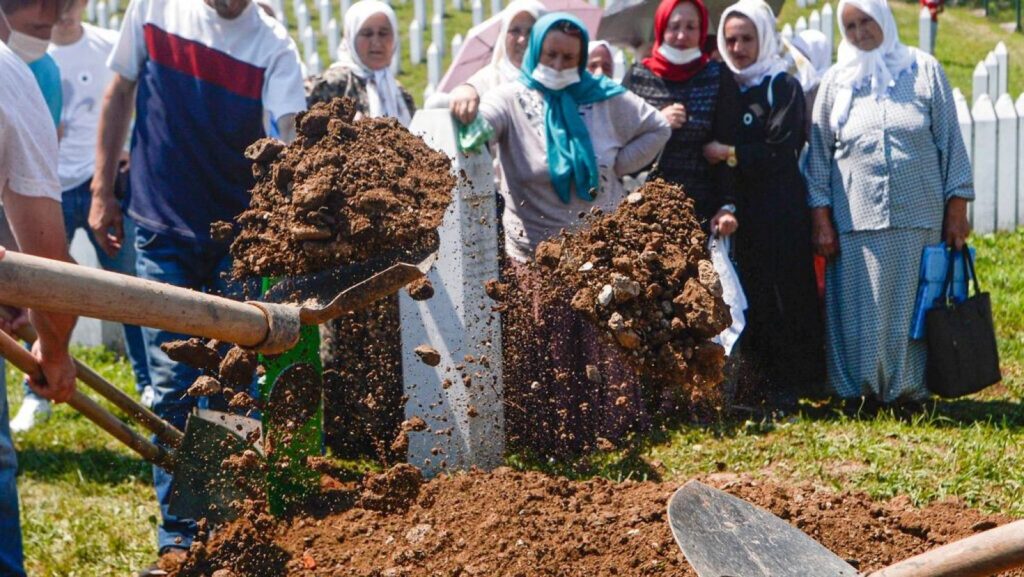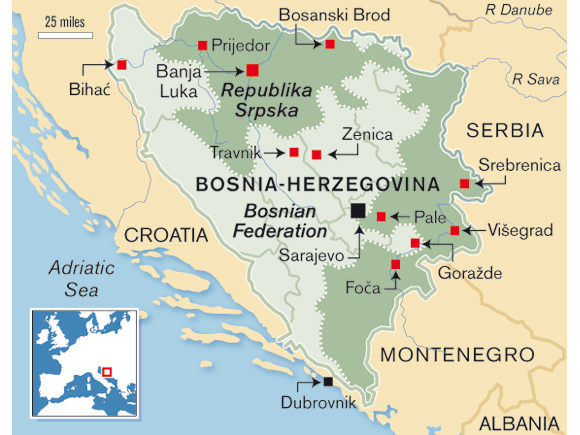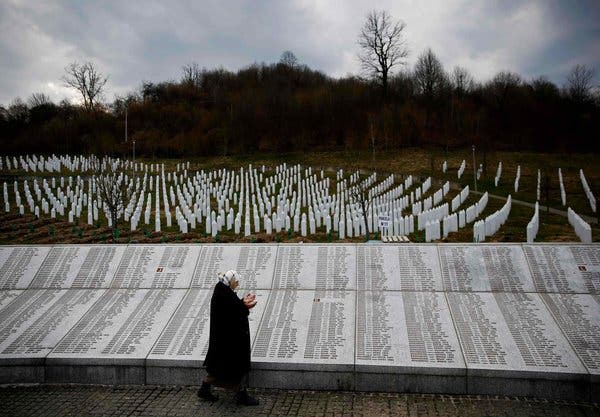Today marks a somber anniversary. It has been 25 years since the massacre of more than 8,000 Bosniak Muslim men and boys in and around Srebrenica, Bosnia.
Body parts are still being found in mass graves and are being put together and identified through DNA analysis. Close to 7,000 of those killed have already been found and identified. Newly identified victims are buried each year on July 11 — the anniversary of the day the killing began in 1995 — in the memorial cemetery.

Bosniak Muslim member of the country’s tripartite presidency, Sefik Dzaferovic called on the world to demand Serb leaders finally accept responsibility and open the way for true reconciliation.
“I am calling on our friends from around the world to show not just with words but also with actions that they will not accept the denial of genocide and celebration of its perpetrators,” he said.
“The Srebrenica genocide is being denied (by Serb leaders) just as systematically and meticulously as it was executed in 1995 … we owe it not just to Srebrenica, but to humanity, to oppose that,” he added.

The Srebrenica massacre is the only episode of Bosnia’s 1992-95 war to be defined as genocide, including by two U.N. courts. But leaders in neighboring Serbia still deny the extent of the 1995 massacre and refuse to acknowledge what amounted to a genocide.
Bosnian Serb wartime political leader, Radovan Karadzic, and his military commander, Ratko Mladic, were both convicted of and sentenced for genocide in Srebrenica by a special U.N. war crimes tribunal in The Hague. In all, the tribunal and courts in the Balkans have sentenced close to 50 Bosnian Serbs wartime officials to more than 700 years in prison for Srebrenica killings.

See also: The 21 Gun Salute
On a personal note, your editor spent some time in the former Yugoslavia during this period. What I witnessed will stay with me for the rest of my life. And to be fair, it wasn’t just the Serbs that committed atrocities, they were just responsible for the bigger ones.
